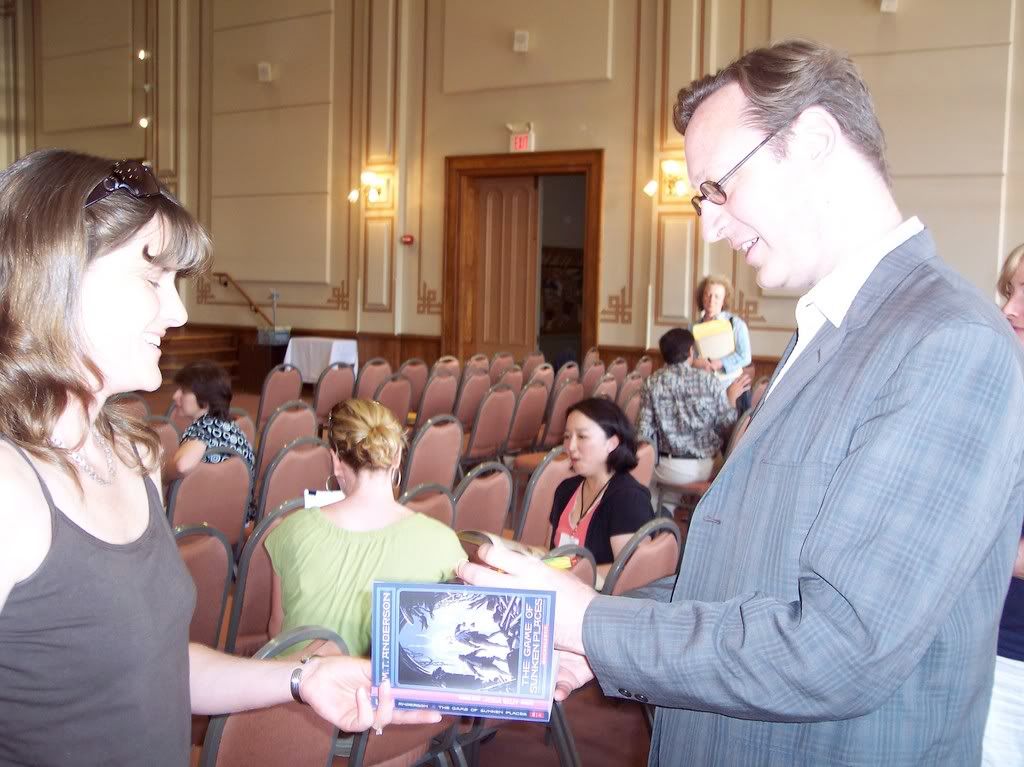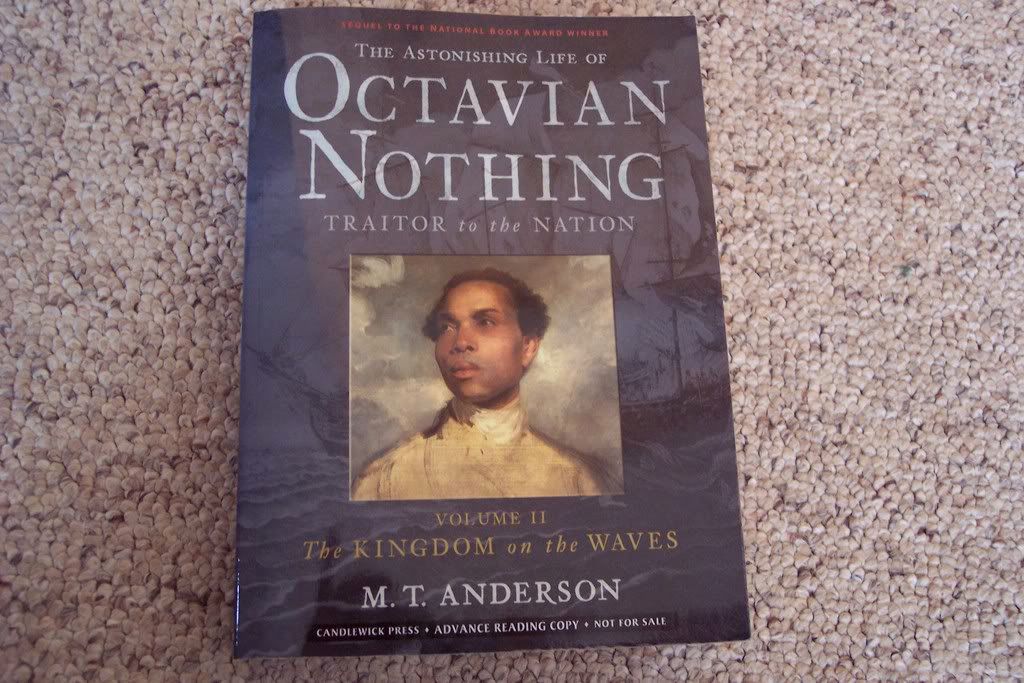Once in a while, I read a truly unique book that speaks powerfully to all three. In the past few weeks, I’ve read advance reader copies of two of those amazing books, both by writers named Anderson, coincidentally, and both about the choices faced by slaves during the American Revolution.


CHAINS by Laurie Halse Anderson tells the story of Isabel, a slave trapped in New York City in the early days of the Revolution. Sold to Loyalists when her former owner dies, she’s offered the chance to spy for the Patriots. But does their talk of liberty really include her? What about the British, who promise freedom to slaves who join their fight against the rebels?
This book is impeccably researched in a way that not only convinced me I was getting “the real deal” as far as the historical details are concerned but also transported me straight back into the 18th century. Some historical novels that have tackled this issue in the past have made it overly simple, but CHAINS is different. The historical context isn’t simplified, the Patriot cause isn’t glorified, and the characters are flawed, complex, and rich. As a reader and as a teacher, I am in serious book-love, and I already have plans to use this novel in my 7th grade classroom next year. CHAINS is a well-researched look at choices made by individuals during the Revolution, a coming-of-age story for a girl and a nation, and an absolute page-turner. It’s everything that historical fiction ought to be.
While I read CHAINS in two days, it took me several weeks to get through M.T. Anderson’s THE ASTONISHING LIFE OF OCTAVIAN NOTHING, TRAITOR TO THE NATION, VOLUME II: THE KINGDOM ON THE WAVES. Not because it wasn’t good. It was amazing. But it was a difficult book to read on a few levels. M.T. Anderson is right up near the top on the list of the smartest people I’ve ever encountered, and his prose is dense. The 18th century language of this series occasionally requires a dictionary. More than that, though, Octavian’s story is difficult to read because it feels so, so raw.
Like CHAINS, this book looks at the experience of slaves in the American Revolution through the eyes of an individual – in this case, Octavian Nothing, who grew up as the subject of scientific and philosophical experiments by a group of elite Boston men and in this latest volume, joins Lord Dunmore’s Ethiopian Regiment to fight the Rebels. Octavian’s life and his choices are based on the experiences of many slaves during this time period. Anderson tells his story with a detachment that is somehow analytical and yet deeply personal and emotional all at once. It’s an amazing, amazing book. And I especially love the way it ends – with an author’s note that challenges us to consider not only the past but the present.
If you have any interest at all in American history, read both of these books when they come out this fall. You’ll be transported by the masterful storytelling. You’ll come away with a deeper sense of our history as a nation — for better or for worse. And you’ll be thinking abut Isabel and Octavian for a long, long time.








